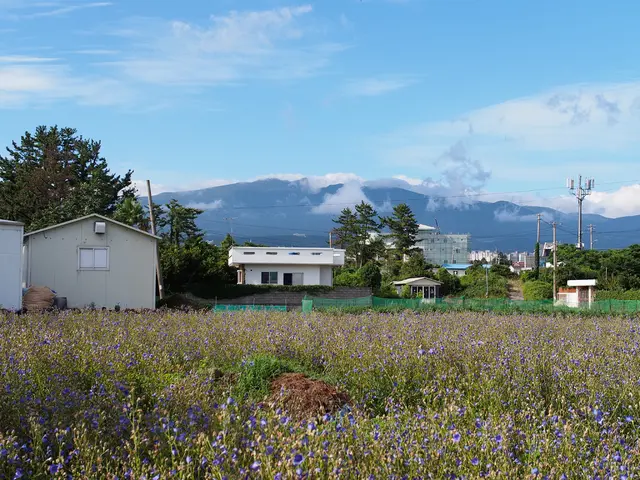Enhancing Global Collaboration: Kazakhstan's Crucial Contribution to International Partnerships
In a world torn by geopolitical strife, environmental catastrophes, and economic turmoil, the need for international cooperation has never been more urgent. And it's middle powers like Kazakhstan that are stepping up to the plate, filling the void once occupied by superpowers. Nestled between giants like Russia and China, this jewel of Eurasia serves as a bridge, promoting dialogue and facilitating exchanges worldwide.
Prepare to join the conversation as Kazakhstan hosts the Astana International Forum 2025 in its vibrant capital. With over 5,000 attendees from more than 50 countries, the event, happening from May 29 to 30, will delve into critical issues such as foreign policy, energy, and finance, seeking innovative solutions to the most pressing challenges we face today. The theme: Connecting Minds, Shaping the Future, promises a series of inspiring discussions that will reshape the globe.
Kazakhstan's geographic spotlight in the heart of Eurasia gives it a unique edge, strategically bordered by Russia to the north, China to the east, and nations like Kyrgyzstan, Uzbekistan, and Turkmenistan to the south, with the Caspian Sea to the west. Its multi-vector foreign policy approach emphasizes cooperation with partners from near and far, aiming to enhance global trade, strengthen economic ties, and foster sustainable growth, both domestically and regionally.
The nation's involvement in major trade corridors, including the Belt and Road Initiative and the Trans-Caspian International Transport Route, showcases its role in fostering trade relationships between East and West. The Middle Corridor is making waves, with the volume of goods transported via this route surging by 62% in 2024, reaching 4.5 million tons, and anticipated to reach an annual throughput capacity of 10 million tons by 2027.
With over 80% of goods from China and Central Asia destined for land-based transportation to Europe passing through Kazakhstan, the country serves as a key transit hub in Eurasian trade. Looking to the future, Kazakhstan is eager to further contribute to regional and global development, linking continents, cultures, and nations.
The nation's international reach is strengthened through multinational initiatives like the Central Asia Plus Framework, which aims to fortify regional collaboration. Kazakhstan's foreign policy is shifting towards greater cooperation, with common challenges like combating climate change and ensuring sustainable economic growth playing a unifying role.
Kazakhstan's active participation in global trade and economic forums highlights its commitment to diverse partnerships, setting the stage for a more resilient economic future as it develops non-oil industries and funds infrastructure development and digital innovation. In 2024, this approach led to a robust 4.7% economic growth, largely driven by expansion in non-oil sectors. The country has also chaired several prominent international organizations, demonstrating its global influence.
As a fervent advocate of the Great Gain for All principle, Kazakhstan takes a united approach to addressing political, social, and environmental challenges. Its actions are in harmony with the United Nations' mission for global security and stability. Kazakhstan supports UN peacekeeping efforts, deploying peacekeepers to various missions and allocating $600 million for humanitarian and development assistance. It has also offered a neutral platform for resolving regional conflicts, including the Astana Process on Syria since 2017 and the Azerbaijan-Armenia talks last year.
In addition to its diplomatic endeavors, Kazakhstan plays a vital role in energy market stability. It supplies 43% of the world's uranium needed for nuclear power plants and produces more than half of the 34 critical raw materials of high importance to the EU. Moreover, Kazakhstan is investing in green hydrogen production, wind energy, and solar energy, aiming to become a leader in renewable energy exports. By investing in energy infrastructure and implementing policies that support energy exports, Kazakhstan positions itself as a reliable energy partner for the EU.
Through its strategic initiatives and diplomatic engagements, Kazakhstan is charting the course for global governance, reflecting the necessity of peace and stability in the multipolar reality of the 21st century.
The article was originally published in CNN International as part of the Astana International Forum's 2025 brand.
Key insights:- Kazakhstan actively engages with multilateral organizations like the SCO and EAEU to foster cross-border dialogue and address geopolitical complexities.- By participating in partnerships with emerging economies like Brazil, Russia, India, China, and South Africa through the BRICS, Kazakhstan enhances its role in global governance.- The country is working to diversify its economy, moving away from reliance on oil and gas, as part of a strategy to improve economic resilience and contribute to global economic stability.- Kazakhstan collaborates with European countries to build a resilient global economy, strengthening trade ties and fostering inter-parliamentary dialogues.- The country takes an active role in advocating for climate action, including hosting the Regional Climate Summit in 2026, and supporting the creation of the UN Regional Center for SDGs in Central Asia and Afghanistan.- Kazakhstan's commitment to regional cooperation, economic diversification, and sustainable development positions it as a strategic player in global governance.
- In 2025, Kazakhstan will prioritize connecting with global minds to shape the future, focusing on critical issues such as energy, finance, and climate change at the Astana International Forum in its capital.
- By 2027, the Middle Corridor, a key trade route passing through Kazakhstan, is anticipated to reach an annual throughput capacity of 10 million tons, showcasing the country's vital role in fostering trade relationships between East and West.
- With a commitment to sustainable economic growth, Kazakhstan is investing in green hydrogen production, wind energy, and solar energy to become a leader in renewable energy exports, contributing to energy market stability.
- In 2026, Kazakhstan will host the Regional Climate Summit, aligning with its advocacy for climate action, as part of its broader strategy for regional cooperation and sustainable development.
- As a fervent advocate for global security and stability, Kazakhstan aligns its actions with the United Nations' mission, supporting UN peacekeeping efforts and offering a neutral platform for resolving regional conflicts.








